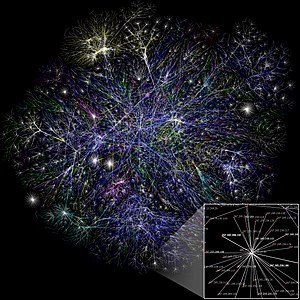 Image via Wikipedia
Image via WikipediaPreviously the programme had to be paper-based, and was then shifted to Blackboard. Blackboard was used as the main portal, as well as using Open Office suite, Google Earth, Pivot Animation, PowerPoint and Skype.
Students were most active and engaged when parents and immediate community was involved in learning. This led to improved reading ability, higher return rate of work, developing social skills, and improving ICT skills. Students' feedback emphasised the connections and that they were able to contact each other more easily. They enjoyed talking to other students, easier writing/editing, talking to the teacher on Skype about what they need or would like to share/show, using online interactive activities, searching and researching, and creating learning relationships.
The lessons from the pilot were multifarious. There were real positive results such as increase in achievement, but the scalability and sustainability are still under discussion. It was stressed that there needs to be full buy-in from the school.
![Reblog this post [with Zemanta]](http://img.zemanta.com/reblog_a.png?x-id=decb79bf-0fe0-4b85-9034-a3f05db08aa0)





No comments:
Post a Comment